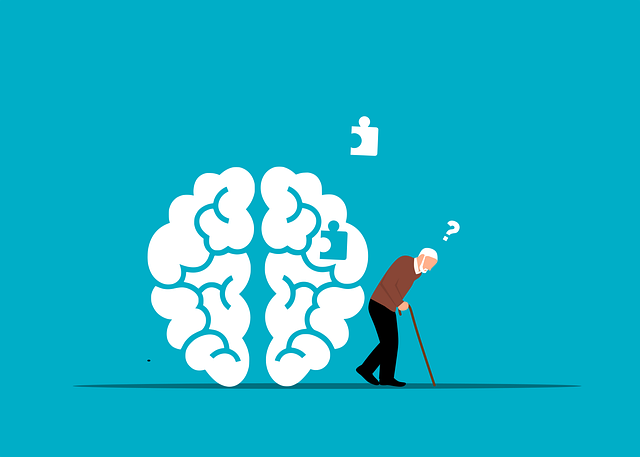Stress management is vital for physical and mental well-being, and Denver Gambling Therapy offers a unique approach. By addressing individual triggers and providing coping strategies, this therapy enhances resilience and prevents burnout and anxiety. Integrating self-care routines and mindfulness practices, like meditation, alongside lifestyle changes such as nutrition and exercise, is essential. Support systems and alternative therapies also play crucial roles in stress reduction. Denver Gambling Therapy can influence mental health policy through its successful unconventional methods, suitable for community support systems.
Stress reduction is a vital component of overall well-being. In this article, we explore various effective methods to combat stress, from understanding its root causes to adopting unique approaches like Denver Gambling Therapy, which offers an innovative perspective on relaxation. We delve into proven techniques such as mindfulness, meditation, and lifestyle changes, emphasizing their role in managing stress. Additionally, we discuss the importance of support systems and alternative therapies for a holistic approach to stress management.
- Understanding Stress: Causes and Effects
- Denver Gambling Therapy: A Unique Approach to Stress Reduction
- Mindfulness and Meditation Techniques for Daily Practice
- Lifestyle Changes: Nutrition, Exercise, and Sleep for Stress Management
- Support Systems and Alternative Therapies for Overcoming Stress
Understanding Stress: Causes and Effects

Stress is a complex response to various internal and external factors, impacting both our physical and mental well-being. It arises from diverse causes, such as work pressure, financial worries, relationship issues, or even overwhelming schedules. In Denver, gambling therapy offers an innovative approach to understanding and managing stress by addressing underlying triggers and providing coping mechanisms tailored to individual needs. This form of therapy helps individuals identify their specific stressors and teaches them healthy ways to respond, ultimately improving overall resilience.
The effects of prolonged stress can be profound, leading to burnout, anxiety disorders, and even physical health problems like cardiovascular diseases. For mental health professionals, effective risk management planning is crucial to prevent burnout, which is a significant concern within the healthcare industry. By integrating self-care routine development as part of their practice, professionals can enhance their own mental health while better serving their clients. Additionally, burnout prevention strategies for healthcare providers are essential to maintaining a healthy work-life balance and ensuring high-quality patient care.
Denver Gambling Therapy: A Unique Approach to Stress Reduction

Denver Gambling Therapy offers a unique approach to stress reduction that goes beyond traditional methods. This innovative practice leverages the power of structured gambling experiences to help individuals manage and overcome anxiety relief challenges. By creating a controlled environment where participants can engage in strategic decision-making, this therapy provides an alternative way to navigate stress and its associated mental health issues.
Incorporating Denver Gambling Therapy into mental healthcare practices aligns with the principles of Healthcare Provider Cultural Competency Training. It allows professionals to offer tailored interventions that resonate with diverse populations, contributing to improved outcomes. Moreover, this therapeutic approach can inform Mental Health Policy Analysis and Advocacy efforts by highlighting unconventional yet effective stress reduction strategies that could be integrated into broader community support systems.
Mindfulness and Meditation Techniques for Daily Practice

Incorporating mindfulness and meditation into your daily routine can be a game-changer in stress reduction, especially for those dealing with challenges like Denver Gambling Therapy. These practices have been shown to not only enhance mental health but also improve overall well-being. Start by dedicating just a few minutes each day to simple breathing exercises, focusing on the sensation of air entering and leaving your body. This ground-level approach can quickly become a calming ritual that prepares you for the day or soothes you at its end.
For more advanced techniques, consider guided meditations designed for relaxation and stress relief. There are numerous apps and online resources offering these sessions, catering to various themes like nature walks or peaceful sleep environments. Regularly engaging in such practices can help cultivate a sense of inner peace, making it easier to navigate life’s complexities. Incorporating mindfulness into your self-care routine, alongside initiatives like Community Outreach Program Implementation or Self-Care Practices for better mental health, can lead to profound personal growth and resilience.
Lifestyle Changes: Nutrition, Exercise, and Sleep for Stress Management

In the pursuit of stress reduction, lifestyle changes play a pivotal role, offering a holistic approach to well-being. Nutrition, exercise, and sleep are fundamental pillars that significantly influence our mental health. A balanced diet, rich in essential nutrients, supports not just physical health but also enhances cognitive function and emotional resilience. Incorporating regular physical activity into your routine is another powerful strategy. Exercise releases endorphins, nature’s mood elevators, which can help alleviate stress and improve overall well-being, making it a valuable tool in the arsenal of anyone seeking Denver Gambling Therapy or burnout prevention strategies for healthcare providers.
Adequate sleep is often overlooked but is essential for effective stress management. During sleep, our bodies and minds recover from daily demands, allowing us to approach life with renewed energy and clarity. Prioritizing quality sleep can be a game-changer in the fight against stress, especially when combined with positive thinking and social skills training. These lifestyle adjustments work synergistically to create a more balanced and serene state of being, promoting better mental health outcomes.
Support Systems and Alternative Therapies for Overcoming Stress

Support systems play a pivotal role in stress reduction and overcoming challenging situations. Connecting with like-minded individuals or seeking professional help through Denver Gambling Therapy can offer valuable guidance and coping mechanisms. These therapies not only address specific issues but also provide a safe space to process emotions, enhance self-awareness, and develop healthier coping strategies. Many people find solace in sharing their experiences and receiving support from peers who understand their struggles, fostering a sense of belonging and reducing feelings of isolation.
Alternative therapies are another effective approach to managing stress. Techniques such as mindfulness meditation, yoga, and acupuncture have gained popularity for their ability to promote relaxation and improve overall well-being. These practices can serve as powerful burnout prevention strategies for healthcare providers, helping them maintain balance in their demanding professions. Additionally, focusing on depression prevention through self-care routines and confidence-boosting activities can significantly contribute to an individual’s resilience against stress and its associated mental health challenges.
Stress reduction is a multifaceted journey, and as this article has explored, various methods can help manage its impact. From understanding stress triggers to adopting mindfulness practices and lifestyle changes, individuals have numerous tools at their disposal. Moreover, innovative approaches like Denver Gambling Therapy offer unique paths to relaxation and emotional well-being. By combining traditional techniques with alternative therapies, one can create a personalized strategy for enduring stress, fostering resilience, and enhancing overall quality of life.














